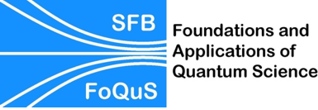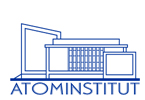 | ||
Projects
| Dipolar quantum gasesHanns-Christoph NägerlThe quest for dipolar quantum gases of ground-state molecules marks one of the latest developments in the rapidly evolving field of quantum gases and Bose-Einstein condensation. The dipolar interaction promises the realization of strongly correlated many-body quantum systems of increased complexity, yet with full state control, with potential applications to future quantum simulation and quantum information technologies. For molecules confined in periodic potentials, the strength and the long-range nature of the electric dipole-dipole interaction remove the restriction to on-site interaction and allow processes where nearest-neighbor interactions are relevant, giving hope to the implementation of extended Hubbard-type Hamiltonians with extra spin degrees of freedom. It is in principle possible to have full control over all external and internal (spin-) degrees of freedom, while the strength and the orientation of the interaction can be tuned by externally applied dc and ac electric fields. Many different quantum phases beyond the well-studied Mott insulator phase have been suggestedby theory, e.g., checker-board and supersolid phases. Exotic pseudo-magnetic ordering is expected, and dipolar gases in a two-dimensional lattice geometry can serve as protected quantum memory and should allow topological quantum computing. In addition, molecular quantum gases with externally controllable dipolar interactions are also expected to play an important role in ultracold coherent chemistry. | |






